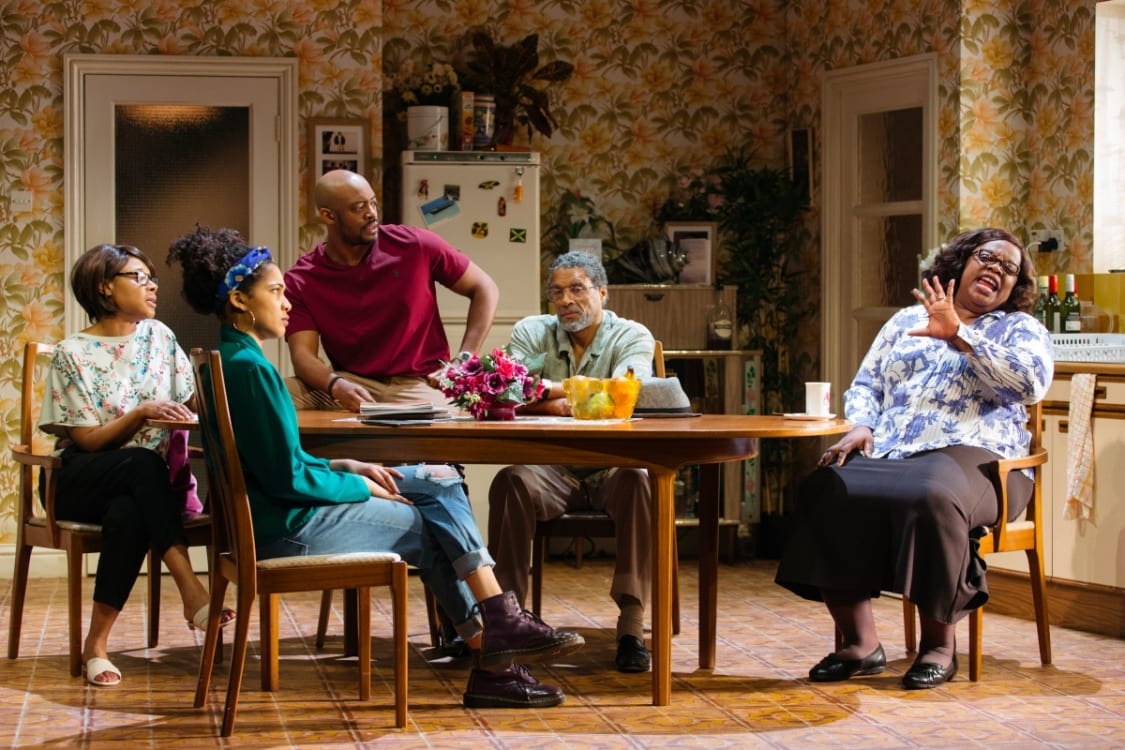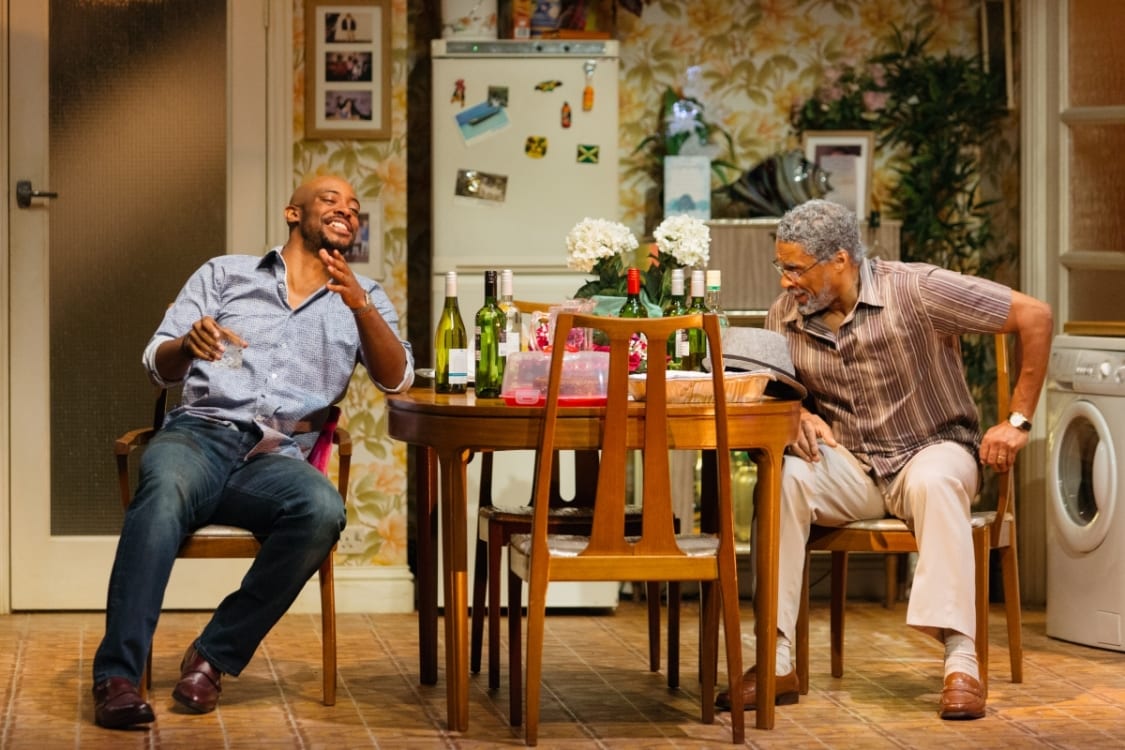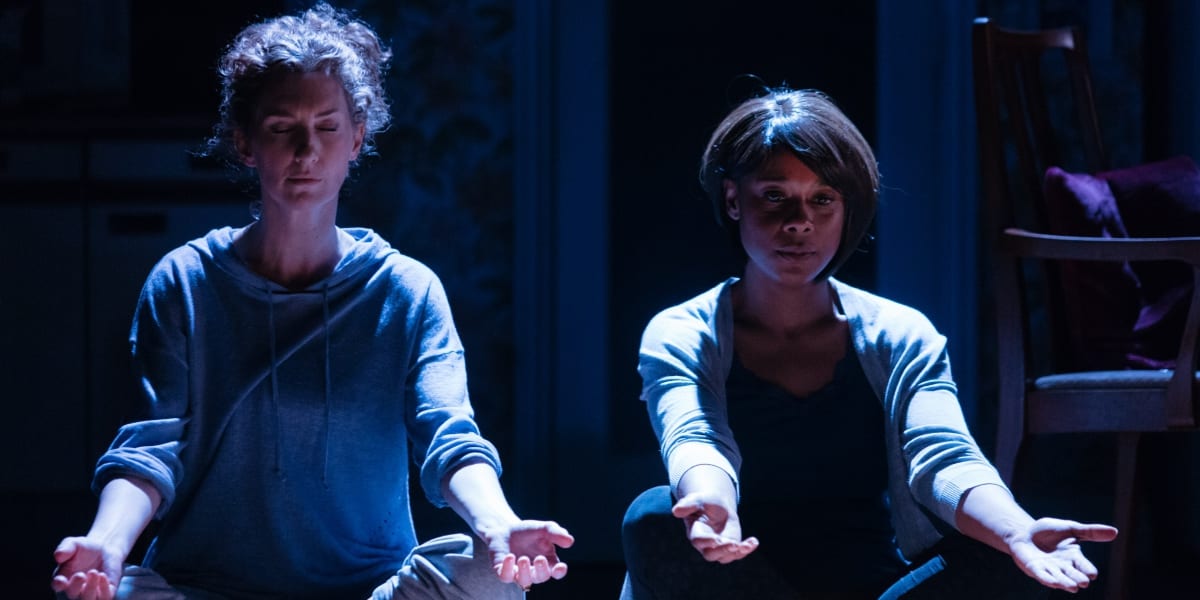Nine Night, a new play by Natasha Gordon, triumphs in its presentation of family dynamics and the laughs and stresses that take hold when the relatives descend. Especially with the backdrop of a dying and then deceased head of the family – Gloria.
The Dorfman provides a wonderfully intimate space for a set which is comprised of a homely kitchen with stairs leading up at the back. The production, skilfully directed by Roy Alexander Weise, delves into the Jamaican ritual of mourning the dead, eating, drinking and dancing before, and one night after, the burial. The play masterfully weaves episodes of sheer comedy with incredibly tough moments as a family comes together to grieve. Woven in are politically poignant undertones, which resonate particularly strongly for the audience in the wake of the Windrush Scandal as the play traces how the family members juggle Jamaican and British identities in a country which, it seems, has not found the decency to welcome groups of people it invited.

Identity splits the family down the middle as the members bridge the gaps between those who grew up in Jamaica and came over, those who were born in Britain, and those who were left behind. Michelle Greenidge vivaciously plays Trudy, Gloria’s daughter, who was born before Gloria set off for Britain and was never brought over. This creates a divide with her half-brother Robert, an ambitious and earnest character brilliantly portrayed by Oliver Alvin-Wilson, and her half-sister Lorraine, the frank and motherly core of the family, shrewdly depicted by Franc Ashman.
Ricky Fearon as gentle Uncle Vince and Cecilia Noble as voluble Aunt Maggie form an engaging couple as the last living familial connections to the Windrush generation. Aunt Maggie is keen to keep the Jamaican Nine Night alive, providing a stark contrast to the practically-minded Lorraine who, having lost her mother, must now provide for any friends or relatives who may walk through her door.

Hattie Ladbury plays Sophie, Robert’s white wife, and brings the ever-simmering concerns about racism to the fore when she announces she is pregnant. Having suffered an insulting remark from her own mother, Robert expresses trepidation that the child will be subjected to the same abusive comments he has experienced on account of his skin colour. Meanwhile Rebekah Murrell captures the oppositional spirit of Lorraine’s caustic daughter Anita, who has grown her natural hair much to the consternation of Aunt Maggie, giving physical expression to her wish to connect with her Jamaican roots.
The power of the play comes from the exploration of a family dynamic which engages with the tension-filled political context while keeping the focus on the interaction between complex and engaging characters. The production is particularly successful in giving the audience an insight into the importance of the spiritual dimension of grieving in Jamaican culture – thereby giving a sense of the identity that has survived beyond migration.

